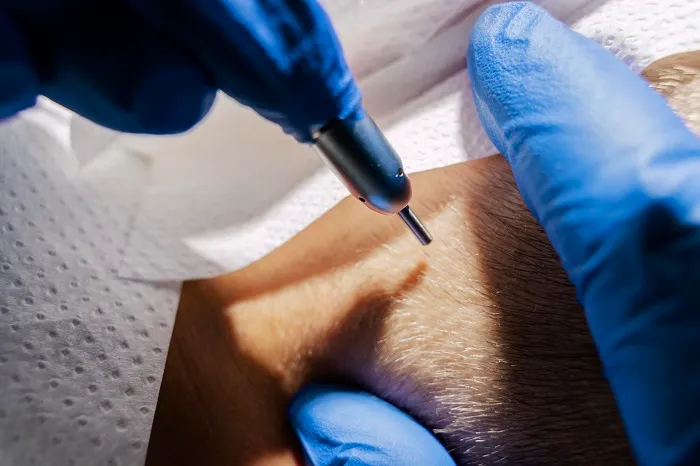Undergoing a hair transplant is a significant step for anyone battling hair loss. Whether you have chosen a Follicular Unit Extraction (FUE), Follicular Unit Transplantation (FUT), or Direct Hair Implantation (DHI), post-operative care plays a critical role in determining the success of the procedure. One of the most overlooked yet crucial aspects of recovery is nutrition. The right diet can promote healing, support hair regrowth, and minimize complications. In this article, we explore what food is good after a hair transplant, incorporating essential dietary guidelines, nutritional requirements, and recovery strategies to help you maintain your results.
Understanding the Hair Transplant Procedure
Before diving into post-operative nutrition, it’s essential to understand the types of procedures available. Patients can explore different Hair Transplant Types based on their specific needs and expectations. These include:
FUE (Follicular Unit Extraction)
FUT (Follicular Unit Transplantation)
DHI (Direct Hair Implantation)
The choice of procedure affects not only the technique but also the recovery timeline and post-care requirements.
The Role of Nutrition in Healing
Nutrition is vital in the healing process after surgery. A balanced diet boosts immunity, speeds up tissue repair, and minimizes the Hair Transplant Risks like infection, inflammation, or delayed graft take. Proper nutrition also supports your scalp’s ability to regrow thick, healthy hair.
Best Foods to Eat After Hair Transplant
1. Protein-Rich Foods
Hair is made of keratin, a protein. Including protein-rich foods like eggs, lean meat, fish, dairy, legumes, and tofu helps regenerate hair tissue and supports new growth. Patients should aim for at least 50-70 grams of protein daily.
2. Iron-Rich Foods
Iron deficiency can impair hair growth. Consume spinach, red meat, lentils, and fortified cereals to maintain optimal iron levels and improve oxygen delivery to healing follicles.
3. Zinc and Selenium Sources
Zinc plays a vital role in cell repair and inflammation control. Foods such as oysters, pumpkin seeds, and whole grains can fulfill your zinc needs, while selenium from Brazil nuts and sunflower seeds aids in tissue regeneration.
4. Omega-3 Fatty Acids
Found in fatty fish (salmon, mackerel), flaxseeds, and walnuts, omega-3 fatty acids reduce inflammation, support scalp health, and promote hair follicle function.
5. Vitamin C-Rich Foods
Vitamin C boosts collagen production and enhances iron absorption. Include oranges, strawberries, bell peppers, and broccoli in your daily diet.
6. Biotin and Vitamin B Complex
B-complex vitamins support metabolism and improve the strength of hair strands. Eggs, whole grains, avocados, and bananas are rich sources of B vitamins and biotin.
7. Hydration and Fluids
Water is crucial for cellular function and wound healing. Drink at least 8-10 glasses of water a day. Coconut water, herbal teas, and electrolyte-rich beverages can also aid in hydration.
Foods to Avoid After Hair Transplant
Alcohol: It thins the blood and delays healing.
Smoking: It impairs blood flow and graft survival.
Junk and Processed Foods: High sugar and salt can interfere with wound healing.
Caffeine: Excessive intake may lead to dehydration and hinder absorption of vital nutrients.
Meal Plan Suggestions for First 7 Days
Below is a sample post-hair transplant diet:
Day 1-2:
Boiled eggs, yogurt, soup, mashed vegetables
Hydrate with coconut water and warm herbal teas
Day 3-4:
Grilled chicken or tofu, brown rice, steamed greens
Fresh fruit smoothies with chia or flax seeds
Day 5-7:
Whole grain toast with avocado and boiled egg
Grilled salmon, quinoa, roasted vegetables
Supplementation After Hair Transplant
Sometimes diet alone is insufficient. Supplements such as biotin, zinc, iron, and multivitamins may be prescribed. However, they should only be taken under the supervision of a medical professional to avoid over-supplementation or drug interactions.
Connection Between Nutrition and Hair Transplant Recovery
Following a healthy diet can reduce your Hair Transplant Recovery Time. Nutrients aid in faster wound closure, decreased swelling, and better graft anchoring. Patients who follow a nutritious meal plan often notice healthier, stronger hair within a few months.
Costs vs. Nutrition: Do They Relate?
While discussing Hair Transplant Costs, it’s important to factor in post-operative care, including diet and supplements. A poorly planned diet can affect graft success, potentially leading to additional costs for corrective procedures.
Common Mistakes in Post-Transplant Diet
Skipping meals due to discomfort or stress
Relying on fast food for convenience
Overloading on supplements without guidance
Inadequate hydration
Tips for Long-Term Hair Health
Post-transplant nutrition should evolve into a long-term lifestyle. Adopt habits like meal prepping, reducing processed foods, and maintaining micronutrient balance. Continue consuming protein, vitamins, and minerals even after visible recovery to maintain density and scalp health.
Consulting Your Surgeon and Dietitian
Each patient has unique dietary needs. After reviewing your Hair Transplant Types and health history, your plastic surgeon may recommend specific diet plans or refer you to a dietitian for tailored advice.
Conclusion
Nutrition is a cornerstone of successful hair transplant recovery. A well-balanced diet rich in proteins, vitamins, minerals, and hydration supports healing, graft retention, and long-term hair health. Avoiding unhealthy foods and maintaining a disciplined approach to eating can significantly enhance your results. Always consult your healthcare provider when planning your post-operative care, including your dietary strategy. By integrating the right foods, you not only speed up your Hair Transplant Recovery Time but also protect the investment you’ve made considering Hair Transplant Costs and potential Hair Transplant Risks.
Remember, your fork can be as important as your follicle when it comes to achieving optimal hair transplant outcomes.
Related Topics
- How Much Does Fue Hair Transplant Cost
- 9 Side Effects Of Hair Transplantation
- A Hair Transplant In Glasgow: Pros & Cons


